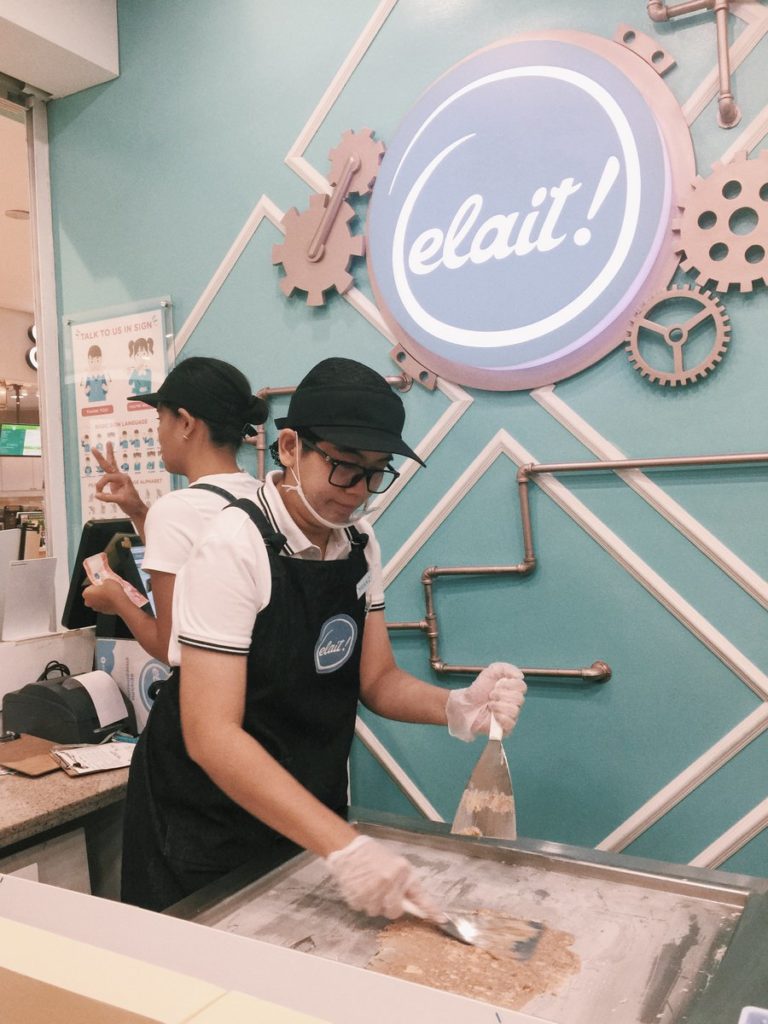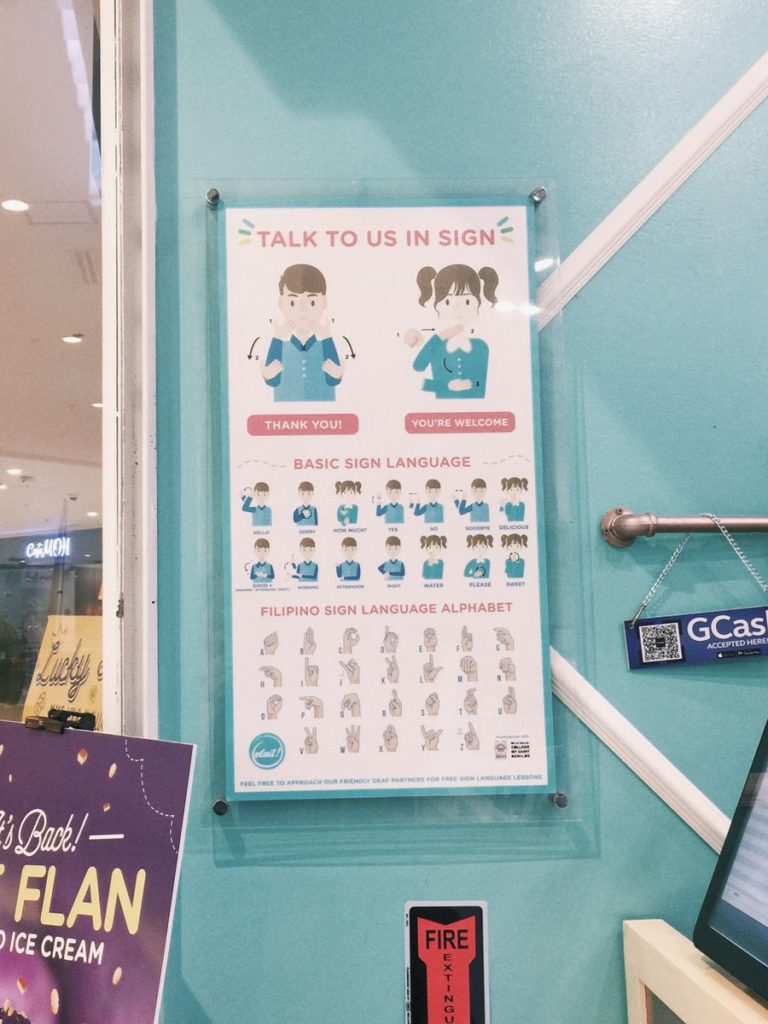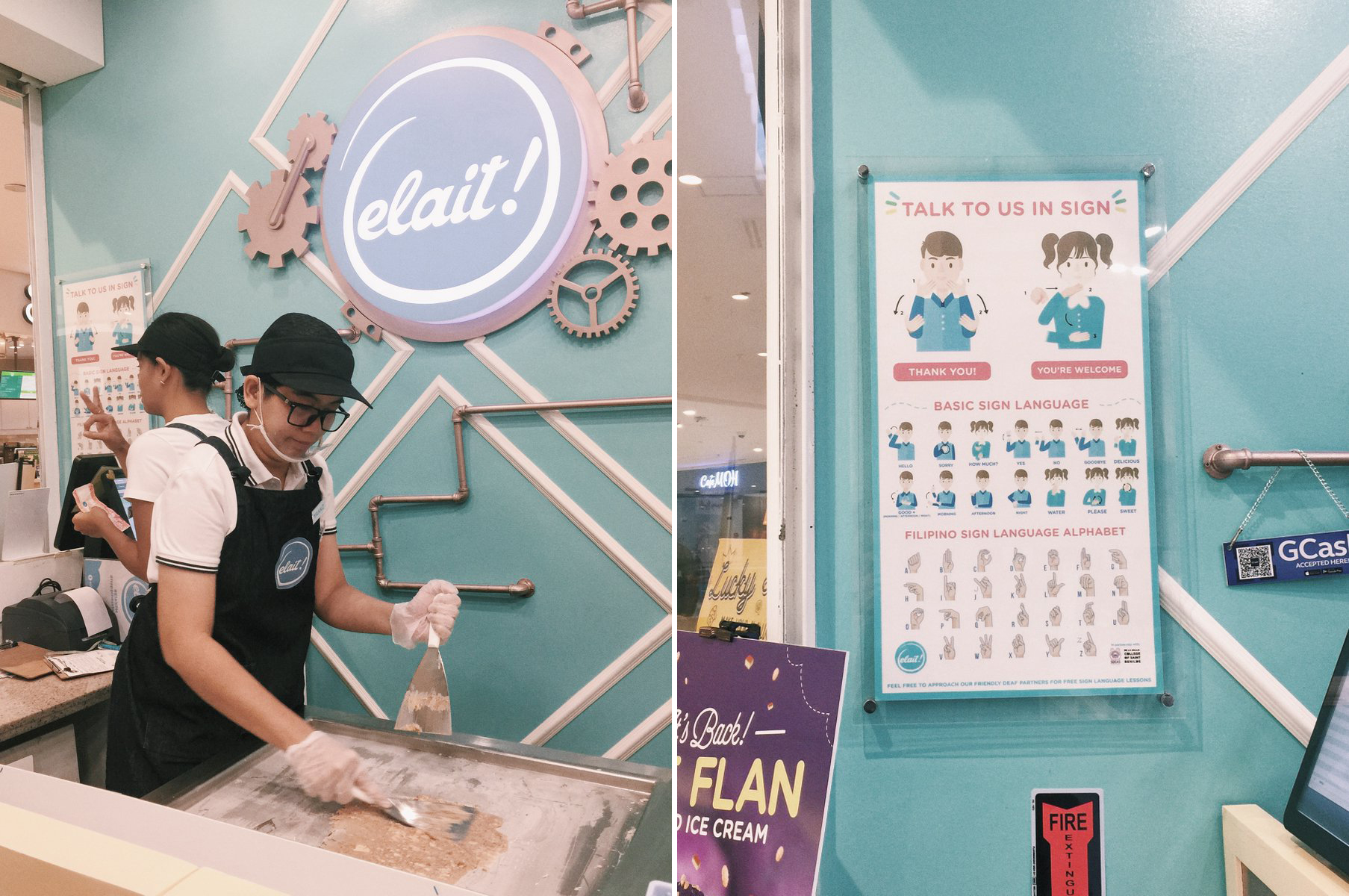The Philippine Magna Carta for Disabled Persons (R.A. 7277) which took effect in 1992 states that the country shall “adopt policies ensuring the rehabilitation, self-development and self-reliance of disabled persons.” It also cites that people with disabilities (PWDs) shall have equal opportunities for suitable employment. But even if with this law enacted in the country, it’s still rare to find workplaces that provide opportunities for PWDs.
Despite numerous decrees of acceptance for PWDs, they still experience various forms of discrimination, an effect of which is finding it hard to get a proper job where they feel empowered and treated as equal.
This is why people commended an ice cream store for promoting inclusivity by giving opportunities for non-hearing people and empowering their “all-deaf staff”.
Visited my cousin at her new job! ✨
It's rare to find workplaces that provide opportunities for non-hearing people, pero dito empowered pa sila.Check out Elait, u guys! They have an all-deaf staff and delicious ice cream rolls (best yung Mango Strawberry Cheescake) 💖 pic.twitter.com/CBkZ1bI5dg
— Anissa V 💗💜💙 (@issaberds) June 24, 2018
Anissa Villaverde shared on Twitter that she recently visited her non-hearing cousin Mary Angeli “Yan” Torio who has been working at ice cream store Elait. “They have an all-deaf staff and delicious ice cream rolls (best yung Mango Strawberry Cheescake),” she said about the store.
We reached out to Torio who said that she has been working for almost 2 months in the ice cream shop. “It made me happy to [have a] new work,” she said. According to Torio, her friend suggested and encouraged her to apply, got an interview with the CEO, and was later hired last May.
Villaverde shared that this isn’t her cousin’s first job but she still struggled to find a job that she feels suited for her. “I know she’s been struggling to find and keep a job for a while now so it’s nice to see her in a work environment where she’s happy, where she feels like she belongs,” she told InqPOP!
Like any other new employee, Torio said that the job wasn’t a piece of cake at first. She said she was a little nervous to make rolled ice cream that Elait offers but her co-employees and hearing supervisor taught her and helped her improve.

The store also encourages customers to communicate with employees through sign and have posters of basic sign language and alphabets. From her experience, Torio said that when people speak to her, she shows them a note that says “Hi. I am deaf.” and guide them how to communicate or ask them to write their orders on paper—all while giving them a smile.

“Having the staff function without someone hearing to communicate for them and encouraging customers to talk to them in sign, it helps in making others see PWDs as equals,” Villaverde said.
The responses from Villaverde’s tweet has been so overwhelming for her yet it only goes to show that people don’t talk enough about inclusivity for PWDs and how we need more inclusive companies that support the “differently-abled”.
“It’s great [that] there are companies like Elait that not only provide opportunities for the non-hearing, but they also help encourage ‘acceptance’ from others,” she said.
In a survey conducted in 2011 among 210 employers from various industries in the three regions in Northern Luzon and Central Luzon, results show employers’ perception of what PWDs can (or cannot) do for the company greatly determines hiring decisions. The survey showed that Filipino employers have “negative stereotype (low productivity, frequent absenteeism and turnover) towards PWDs, see them as “Added Business Value,” “Added Cost and Efforts at Management,” and have “Social Cost” (negative reactions from customers and co-workers).
While local and international acts supporting PWDs are present, it’s still important to educate people about the capabilities and rights of PWDs to help not only employers—but also the whole community—understand that their disability should not be treated as a hindrance in giving equal opportunities and helping these people achieve their goals in life.
—
Read more from InqPOP!:
One-legged deaf and mute man inspires others for working hard as a sweeper for 12 years
Apple makes technology accessible for PWDs in this empowering video
This woman pretended to be a sign language interpreter for some reason
People who want to be disabled on purpose refer to themselves as ‘transabled’
Paralyzed from the neck down, determined woman writes book using only her eyes



